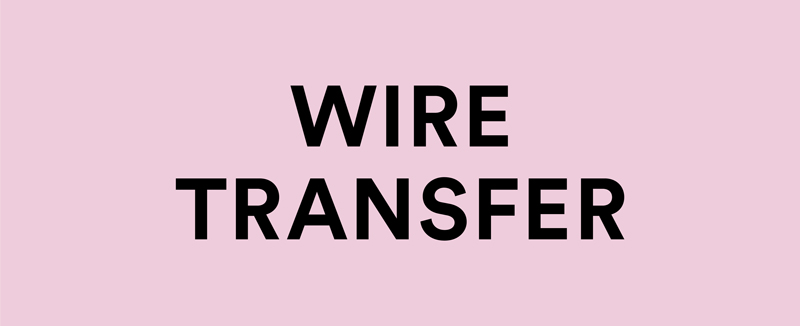Articles with tag:
Globalization
(8 results)
A new voice from Italy / doppiozero goes international
doppiozero was founded in February 2011 to lend a voice to an often under-exposed and little-discussed collective intelligence that tends to be largely ignored by mainstream culture and media. A different Italy, one that speaks a language different from the official rhetoric, and does not share the pessimistic bent that has conditioned much of Italian public discourse over the past twenty years. This intelligence is the collective contribution of critics, writers, reporters and scholars from a number of different disciplines, all committed to seeking new perspectives in interpreting the social situation, and new ways of understanding cultural traditions, artistic heritage, material culture and lifestyles. Their common goal is to observe contemporaneity in all its facets and to capture in art, literature, cinema, philosophy, architecture, theater, design, experiences and political contexts the seeds of new ways of imagining the world and transforming ourselves. Over the years, doppiozero has built a platform of original writing dedicated to topics, trends, works and essential figures in contemporary culture. doppiozero international intends to offer readers...
The Nationless Pavilion
Political crisis of today is dictated by outdated nation state model of mapping the world. While all the other systems already spilled over with economy, art, science going global, nation state still draws the lines on the geographical map. Political power and it’s redistribution is the heart of the issue. Advancement of human civilization, apart of providing technological leaps, also demanded more transparency and visibility from power. It has always been ‘catch and run’ game - with new strategies of mystification of political power into institutional forms of different kinds. Authority redistribution mechanisms always tend to appear impersonal as their function is to communicate idea of being ‘detached’ from the matter of defining good and bad, right and wrong. Ethical, moral and aesthetic judgment seem to appear to naked eye as something defined and proved by centuries of common societal work, where standards of normal are the result of careful, almost Darwinist selection of what is better for all. The mythology of this process was first supported by the narratives of religious dogma and power, while today it’s mostly relies on fear and ignorance. Ulrich Beck[1] rightly...
Guantánamo and the New Concentration Camps
After the terrorist attack on the Parisian satirical magazine, Charlie Hebdo, some commentators wondered what the consequences of a reaction calling for greater security would be for European legislation. The almost hysterical use of the inclusive “we” in the slogans following the attack (Nous sommes Charlie) provide a linguistic clue to the identity politics in play, just as the 9/11 attacks fueled the rhetoric of a “clash of civilizations”. The reaction to both has been a justification for police interventions on an international scale and so-called ‘surgical’ warfare. The Italian philosopher, Giorgio Agamben, in an interview in La Repubblica (Jan 15, 2015), invited readers to “stay lucid” and not repeat the mistakes of the past. “The overlapping of the concepts of terrorism and warfare after 9/11 led Bush to wage a war […] that cost tens of thousands of lives. Without that war, the tragic attack France is now reeling from may never have taken place.” Agamben foresaw a slippery slope towards “what politologists call a ‘Security State’, that is a state where a true political presence simply cannot survive.” The book Guantánamo Diary was published in January 2015 in the...
Why Africa? Changing the Narrative of the World
Why Africa? For many years lettera27 has been dedicated to exploring various issues and debates around the African continent and with this new editorial column we would like to open a dialogue with cultural protagonists who deal with Africa. This will be the place to express opinions, tell their stories, stimulate the critical debate and suggest ideas to subvert multiple stereotypes surrounding this immense continent. With this new column we would like to open new perspectives: geographical, cultural, sociological. We would like the column to be a stimulus to learn, re-think, be inspired and share knowledge. For the opening piece we asked our partners, intellectuals and like-minded cultural protagonists from all over the world to answer one key question, which also happens to be the name of the column: "Why Africa?". We left the question deliberately open, inviting each of the contributors to give us their perspective on this topic from their own context. This first piece is a collection of some of the answers we received, which aims to open the conversation, pose more questions and hopefully find new answers. Elena Korzhenevich, lettera27 Here the column's introduction...
Why Africa? Companions of Longitude
Why Africa? For many years lettera27 has been dedicated to exploring various issues and debates around the African continent and with this new editorial column we would like to open a dialogue with cultural protagonists who deal with Africa. This will be the place to express opinions, tell their stories, stimulate the critical debate and suggest ideas to subvert multiple stereotypes surrounding this immense continent. With this new column we would like to open new perspectives: geographical, cultural, sociological. We would like the column to be a stimulus to learn, re-think, be inspired and share knowledge. For the opening piece we asked our partners, intellectuals and like-minded cultural protagonists from all over the world to answer one key question, which also happens to be the name of the column: "Why Africa?". We left the question deliberately open, inviting each of the contributors to give us their perspective on this topic from their own context. This first piece is a collection of some of the answers we received, which aims to open the conversation, pose more questions and hopefully find new answers. Elena Korzhenevich, lettera27 Here the column's introduction...
Sharing is the new welfare?
In the last few months I’ve rented rooms through Airbnb, listened to music on Spotify, picked up a free yellow bike in Milan, got a lift from Milan to Florence with Blablacar, grabbed a city car for a quick ride with Car2Go, hailed a cab on a rainy night with Uber, and funded a documentary with an online crowd funding platform. I have quite a few friends who rent office space using a co-working website, though I’ve never actually needed to do so myself. A year ago, none of these opportunities I now consider almost routine were nearly as common. They are all different facets of what is called the “Sharing Economy”, or, less frequently, ‘collaborative economy’, or ‘collaborative consumer economy’ . They have one factor in common: the sharing of private resources (my car, my desk, my music, my home, my bike), which has always taken place informally. The novelty lies in the sheer scale of the sharing. Social networking platforms have made sharing a way of life not only among friends or neighbors, but also among complete strangers all over the world. Is the process Jeremy Rifkind called “from ownership to access” really taking place? An article published by Wired framed the...
Drone Theory
0.45 GMT – 05.15 in Afghanistan. Pilot: Shit, is that a rifle? Operator: Dunno, it’s just a warm spot where he’s sitting, I can’t really say, it looks like an object though. Pilot: I hoped there was a weapon down there. Oh well. 01.45 Operator: That truck would be a good target. It’s a 4 x 4 Chevrolet, a Chevy Suburban. Pilot: Yes. Operator: Oh yes. 01.07 Coordinator: The screener says there’s at least one child near the 4 x 4 Operator: Fuck… where? Operator: Send me a fucking image, but I don’t think there are kids around at this time of night. I know these guys are weird, but… Operator: Dunno, could be a teenager, anyway I haven’t seen anything small and they are all bunched together there. This is a transcript of part of a conversation between members of a ‘team’ guiding a Predator drone over the Afghan skies on February 20, 2010. They are sitting comfortably in their chairs on the Creech US Army Base. The exchange goes on for several minutes, grows agitated, and then draws to a close when a missile is launched and two Kiowa helicopters arrive on the scene, having been called in to complete the attack against the intercepted Chevy. The transcript is...
Terrorism and Iconoclasm
There was a time, not that long ago, when the No Logo slogan was all the rage. Brand names of factories that were considered –symbolically but no less terribly – responsible for all the evil in the world. Brands were torn down, physically and emblematically, wherever they were found: on billboards, in shop windows, on designer labels. Some surreptitiously ripped the crocodiles off their Lacoste shirts, while others openly burned gas station signs or fast food chain restaurants hoardings. In a strange economic and cultural commingling, the Enemy was placed under a single umbrella: gas and oil multinationals were bundled together with nauseating hamburger joints, top-end glamor products with the most sought-after sneakers, not to mention the giants of the web with their industrial mentors. The G8 summit in Genoa, Italy, at the beginning of the new millennium was the involuntary funeral of the No Logo movement. Today, protestors gather at the mouths of the tunnels being dug through the Alps so that high-speed trains can race even faster along the new European trade routes. There is still a deeply held suspicion, however, that those logos that we all display, whether we...









 Since 2011
Since 2011 

